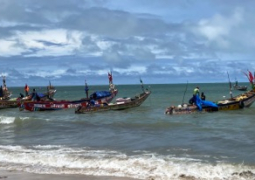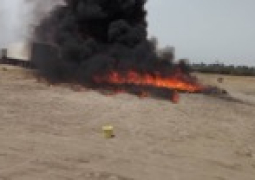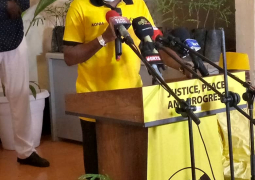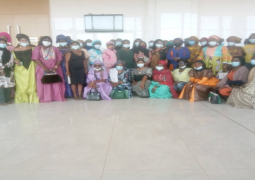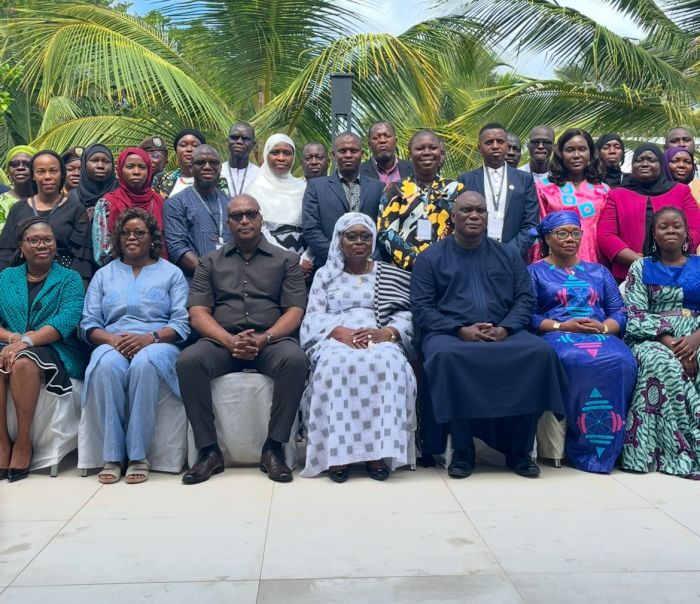
Organised by the Kofi Annan International Peacekeeping Training Centre (KAIPTC) in collaboration with the Ministry of Gender, Children and Social Welfare, the five-day training is being held at Tamala Beach Resort from July 7 to 11, 2025.
The workshop aims to equip national stakeholders with practical knowledge of the African Union’s Continental Results Framework (CRF) a vital tool for monitoring and reporting on the implementation of the Women, Peace and Security (WPS) Agenda. The initiative aligns with the AU’s broader efforts to support member states in translating WPS commitments into measurable outcomes.
During the opening ceremony, KAIPTC’s Acting Commandant, Air Commodore David Anetey Akrong, emphasised the importance of understanding both the conceptual and technical aspects of the WPS Agenda and the CRF. He noted that the training is designed not only to improve reporting but to reinforce collective action towards building a more inclusive and equitable society. He acknowledged the Government of Sweden’s continued support and commended The Gambia’s progress in implementing the WPS agenda through the contributions of government and civil society.
ECOWAS Ambassador Miatta Lilly French described the CRF as a powerful tool for guiding the development of gender-responsive policies and programs. She noted that the framework offers an opportunity for The Gambia to assess its progress, document achievements, and identify areas for improvement. She encouraged participants to apply the training in their daily work and use the CRF as a practical instrument to inform national planning and policy development.
UNDP Deputy Resident Representative Evelyn Edroma welcomed the training as a timely and strategic move. She highlighted the advances made under The Gambia’s National Action Plan, driven in large part by women-led organisations. However, she pointed out that despite these efforts, women still face limited access to platforms for influencing national decisions. She emphasised that sustainable peace requires the full participation of women in leadership, governance, and conflict resolution. UNDP, she added, remains committed to supporting the alignment of national plans with CRF indicators, as well as to strengthening national systems for data collection, reporting, and accountability.
The country’s Minister for Defence, Hon. Serign Modou Njie, reiterated the urgent need for strong monitoring tools in the face of Africa’s evolving security challenges. He said that women have emerged as key actors in peacebuilding and mediation, but their contributions must be properly measured and supported through institutional mechanisms like the CRF. He expressed gratitude to the AU, KAIPTC, and the Ministry of Gender for their leadership in driving forward the WPS agenda.
Minister for Gender, Children and Social Welfare, Hon. Fatou Kinteh, underscored the relevance of the training in preparing The Gambia to meet its 2025 WPS reporting obligations. She acknowledged that many stakeholders have faced challenges in using the CRF and that the training would help address those gaps. She pointed to key achievements, including the country’s second-generation National Action Plan (2021–2025) and legal reforms such as the Women’s Act of 2010, the Domestic Violence Act of 2013, and the Sexual Offenses Act of 2013. These, she said, reflect the government’s firm commitment to gender equality and women’s empowerment as pillars of national development and peace.
Minister Kinteh stated that the training is expected to enhance coordination among government institutions, civil society, and development partners in advancing the WPS agenda.”
“It also marks a significant milestone in The Gambia’s journey toward institutionalizing gender-responsive governance and ensuring that the voices of women are central to national and continental peace building efforts.”
Read Other Articles In Headlines
